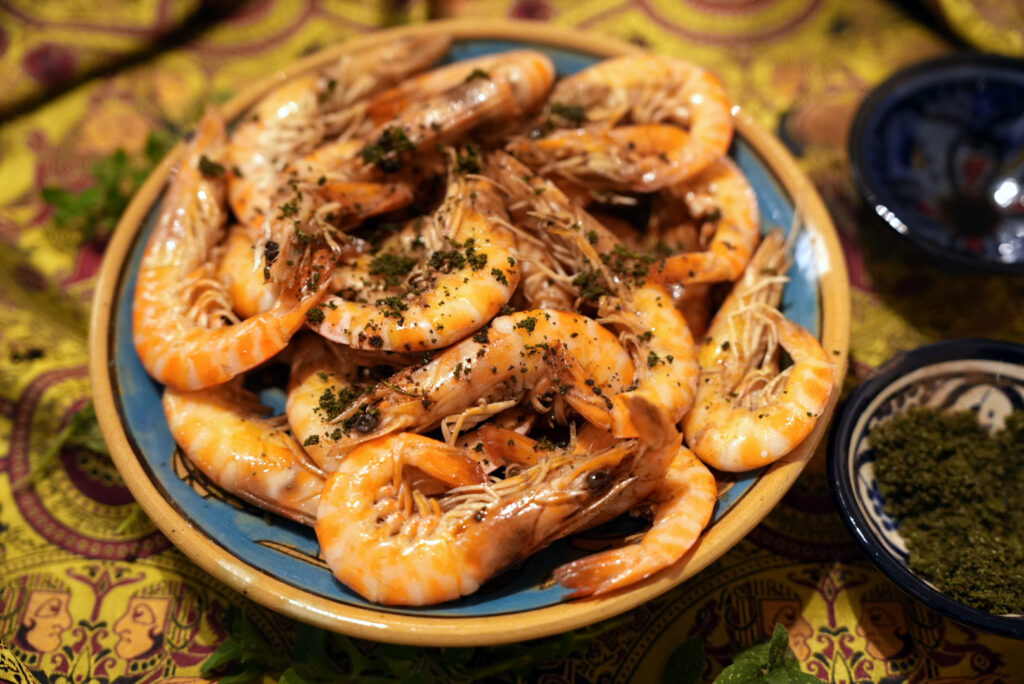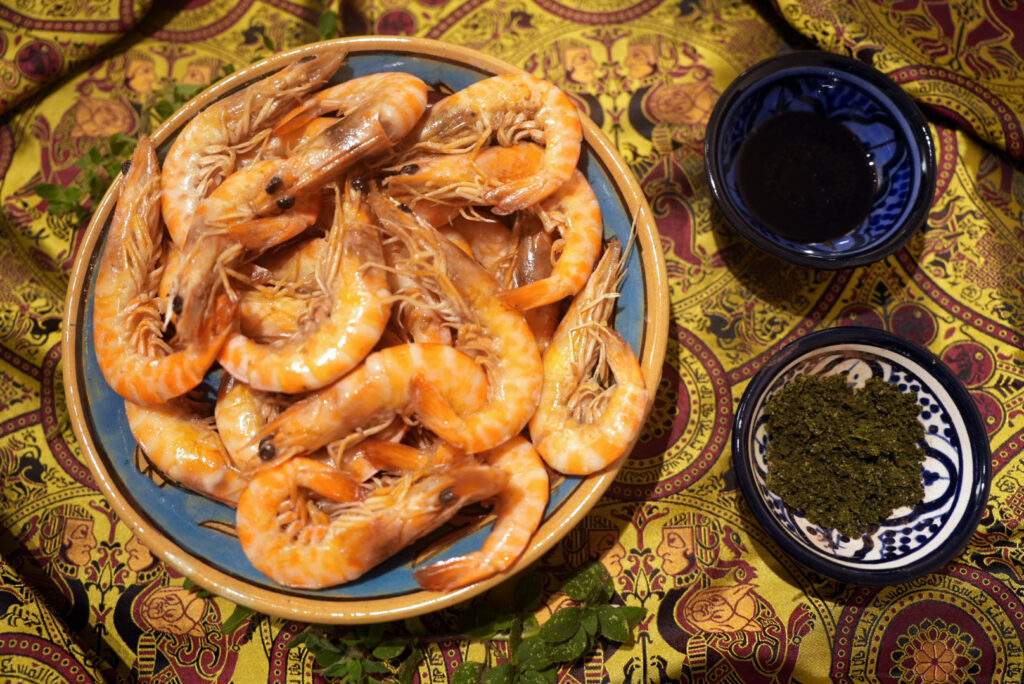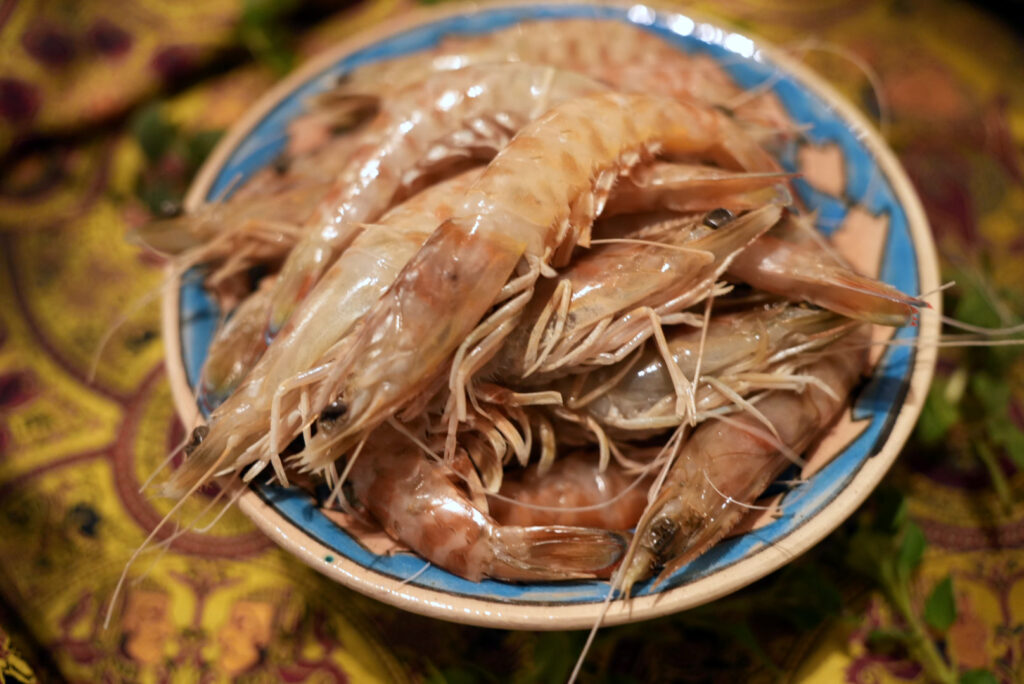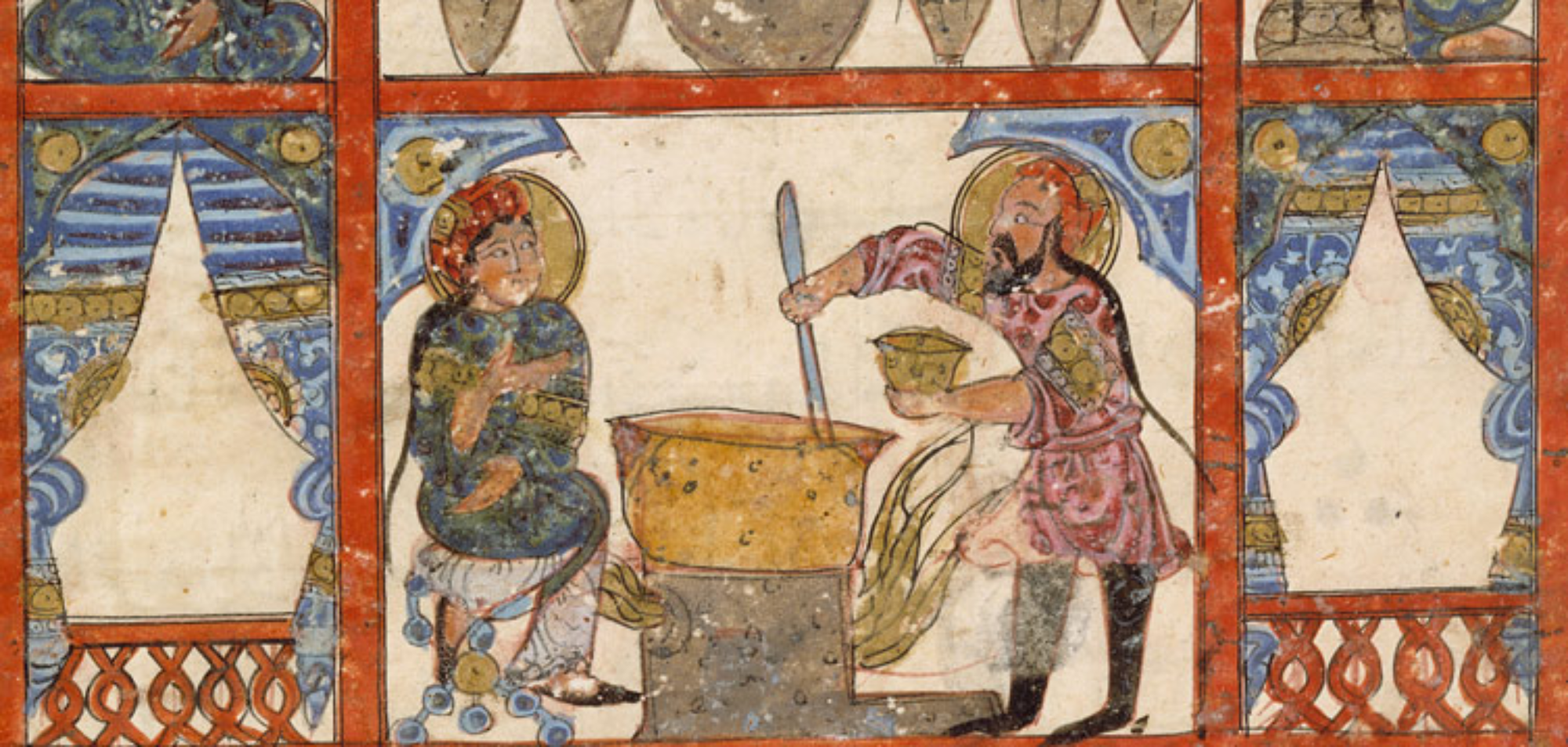This is a unique dish from 13th-century al-Andalus and North Africa from The Exile’s Cookbook for shrimp — known as qamarun (قمرون), a borowing from the Latin cammarus. Though there are a few recipes requiring shrimp in Abbasid cuisine, this is the only one in the medieval Arab culinary tradition that calls for whole shrimp. And not just any shrimp — the author specifies that it was made with shrimp from the rivers of the Seville region which are also found in the river of Bijāya, in present-day Algeria.
After frying the shrimp, they are drizzled with murrī, and sprinkled with oregano, salt, pepper and cinnamon before serving. The spice mixture is very unusual but it works a treat! And, what’s more, apparently the dish also has a medicinal use in that it is prescribed for breaking up calculi.



